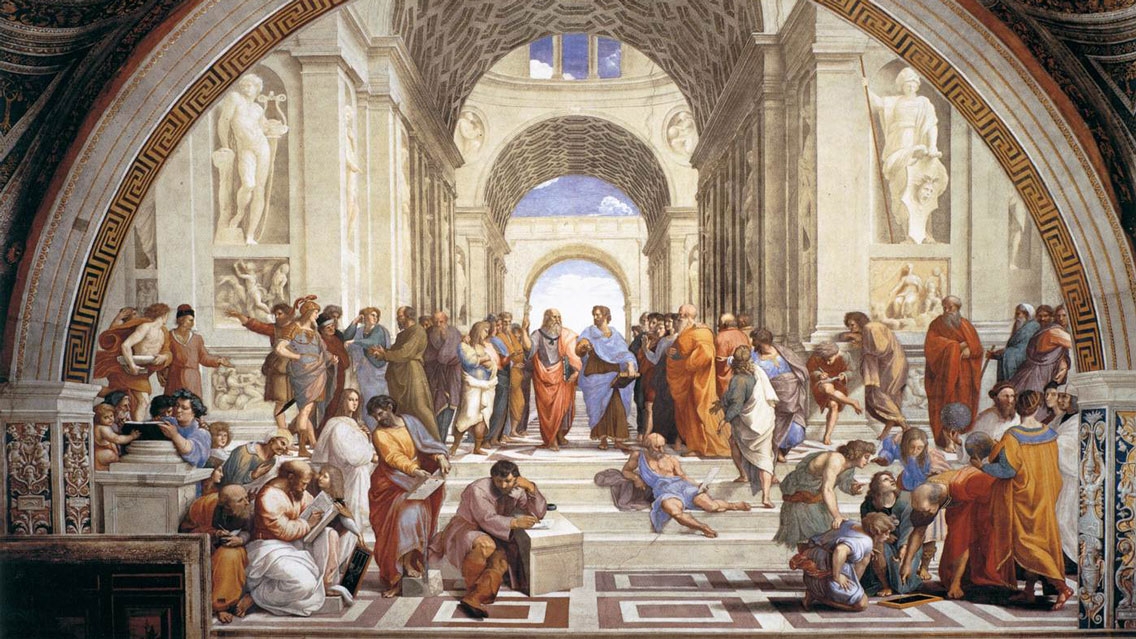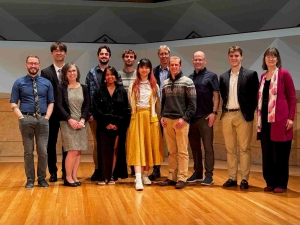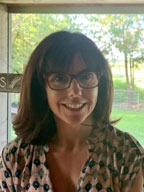Philosophy majors often do independent work with faculty, work jointly with professors on collaborative research, and pursue internships in a variety of fields, enabling them to apply their liberal arts learning in real-world settings.
More Student and Faculty WorkPhilosophy
Philosophy encourages us to uncover presuppositions, to scrutinize arguments, and to reflect clearly and creatively about the most fundamental questions informing our legal, political, scientific, artistic, and moral pursuits.
Many of these basic questions are developed in depth by different branches of philosophy. For instance, ethics asks, “What is good and bad, right and wrong? What is justice?”
Epistemology asks, “What is knowledge as opposed to mere opinion or belief? How do we justify knowledge claims?” Aesthetics asks, “What is art and what is beauty?”
And logic asks, “What are the rules of critical thinking and sound argument?”

About the Department
Philosophy, one of the oldest and broadest disciplines, is a living intellectual enterprise that belongs at the heart of a liberal arts education. From the Greek, philosophia means “love of wisdom” and in that sense of the term, Socrates famously said that philosophy proved necessary for leading “the examined life.” From its ancient origins to our own times, philosophy has always guided our thinking about difficult and controversial issues by allowing us to question assumptions, to examine arguments, and to think clearly and creatively about the most fundamental questions.
The Philosophy Department at Middlebury explores these pursuits through a diverse offering of courses, on topics both historical and contemporary. Students well-versed in philosophy gain outstanding preparation for graduate study and law school, as well as for medicine, business, and many other professions.
Philosophical commitments lie at the foundation of law, government, science, art, and moral debates. Professors of philosophy at Middlebury represent a diversity of research fields and teaching areas; students benefit from this diversity by studying both classics from across the history of philosophy and a wide range of contemporary topics.

Why Study Philosophy
Are you fascinated with intangible ideas and questioning reality? If you look for meaning in everything, and are troubled by the moral injustices taking place around you and want to do something about them, your mindset is in line with the study of philosophy. Human consciousness, our own self-awareness, and where science and truth intersect—these are the topics we explore and develop together as we prepare graduates for careers in law, economics, government, education, public service, or any other number of fields that have deeply rooted philosophical bases.
Awards and Prizes

The John T. Andrews Memorial Prize in Philosophy was established in 1987 by the Flint Charitable Trust in memory of Professor Andrews. It is awarded to the senior philosophy major (or majors) who, in the judgment of the department, is the best philosopher among his/her peers. In 2024 the prize was awarded to Lea Hohenlohe.
The Stanley P. Bates Endowed Prize in Philosophy is accepting applications to pursue research and independent study in Philosophy. Students with qualifying projects should apply here.

Professor Lorraine Besser has been awarded funding from the New England Humanities Consortium (NEHC), which includes Middlebury, to support a Public Philosophy Writing Workshop. The collaborative workshop will bring together a group of philosophers from NEHC institutions who are interested in writing about critical philosophical ideas and insights for a public audience.
Student and Faculty Works

Our Alumni
Majors in philosophy gain outstanding preparation for graduate study and law school, as well as for medicine, business, and many other professions. Some of the many interesting ways our graduates have applied their liberal arts learning to engage the world include the careers listed below. Read more alumni highlights.
- United States Institute of Peace, Senior Program Officer
- CNS Pharmaceuticals Inc., CEO
- Limitless Argentina, Founder and President
- Pacific Standard Magazine, Executive Editor
- FlameStower Inc., Vice President, Sales and Marketing
- Systems and Software Inc., Director of Implementation Consulting
- Tsai Capital Corporation, President and Chief Investment Officer
- Conscience Bay Company, Director of Resource Investments
- Mayor’s Fund to Advance New York City, Executive Director
- The Opposition with Jordan Klepper, Writer
- Kirk Documentary Group/Frontline, Field Producer
- U.S. Air Force, Surgeon
- Uber Advanced Technology Groups, Senior Product Manager, Self Driving Trucks
- Institute Sarita, COO and CFO
- Memorial Sloan-Kettering Cancer Center Library, Special Projects Librarian
- Kaiser Permanente, Clinical Psychologist
- Michigan Indigent Defense Commission, Research Director
- Google Inc., Legal Specialist
- Leadership Enterprise for a Diverse America, Director of Recruitment
- Children’s Law Center of California, Staff Attorney
- Yacobian Group, Creative Director
- JP Morgan, Analyst at the Philanthropy Centre
